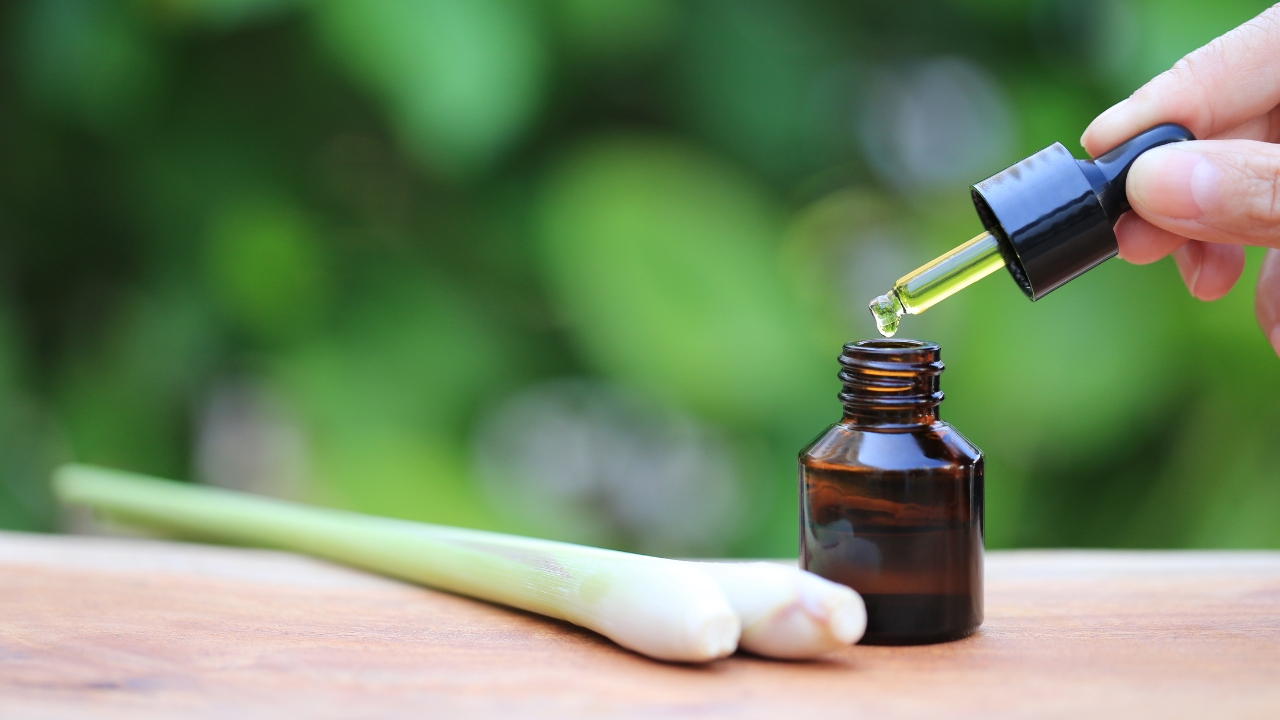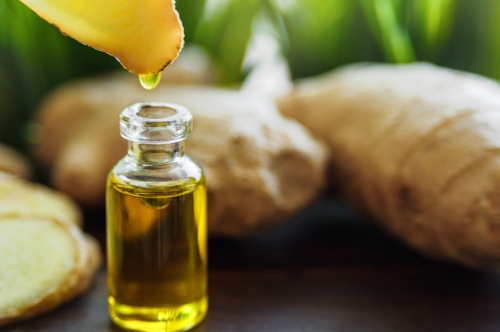How to Extract Lemongrass Oil: Process, Benefits & FAQs

Lemongrass Oil Extraction: Complete Guide to Methods, Process, and Benefits
Lemongrass oil, extracted from the aromatic Lemongrass plant, is renowned for its delightful citrusy scent and numerous therapeutic benefits. In this comprehensive guide, we will explore the various methods and processes involved in lemongrass oil extraction, provide actionable tips for producing high-quality lemongrass essential oil, and answer the most common questions about this versatile natural product.
What Is Lemongrass Oil Extraction?
Lemongrass oil extraction is the process of obtaining highly concentrated essential oil from the leaves and stems of the lemongrass plant. Known scientifically as Cymbopogon citratus, this tropical grass is native to Southeast Asia and is widely cultivated for its aromatic and medicinal properties. The extracted oil is prized for its fresh, lemony aroma and a wide range of applications in aromatherapy, personal care, food flavoring, and natural medicine.
Lemongrass Essential Oil Extraction Methods
There are several methods used for extracting lemongrass essential oil, each with its own advantages and limitations. Understanding these methods can help you choose the best approach for your needs.
1. Steam Distillation (Most Common)
Steam distillation is the traditional and most widely used method for extracting essential oils from plants, including lemongrass. In this process, steam is passed through the plant material, causing the essential oil to vaporize. The vapor is then condensed and collected, resulting in pure lemongrass essential oil.
- Advantages: High purity, preserves delicate aromatic compounds, suitable for large-scale and home extraction.
- Disadvantages: Requires specialized equipment, time-consuming.
For a deeper dive into essential oil production, explore our range of pure and natural essential oils at Norex.
2. Cold Pressing
Cold pressing is a mechanical extraction method commonly used for citrus oils. However, due to the fibrous nature of lemongrass, it is less effective for this plant. Still, it is worth mentioning as an alternative, especially for small-scale or experimental purposes.
- Advantages: No heat involved, preserves some delicate compounds.
- Disadvantages: Low yield for lemongrass, not widely used in the industry.
3. Solvent Extraction
Solvent extraction uses food-grade solvents to dissolve the essential oil from plant material. The solvent is then evaporated, leaving behind the oil.
- Advantages: Can extract more aromatic compounds, suitable for delicate botanicals.
- Disadvantages: Risk of solvent residue, not preferred for therapeutic-grade oils.
Lemongrass Oil Extraction Process: Step-by-Step
The lemongrass oil extraction process involves several critical steps to ensure a high-quality, potent essential oil:
- Harvesting: Select mature, healthy lemongrass plants. Harvest the leaves and stems, as these contain the highest oil content.
- Cleaning: Remove dirt, debris, and impurities by thoroughly washing the harvested lemongrass. This ensures a cleaner, more refined end product.
- Drying: Air-dry the lemongrass in a well-ventilated area or use a dehydrator. Proper drying prevents mold and bacteria growth during extraction.
- Grinding or Chopping: Finely chop or grind the dried lemongrass using a blender or mortar and pestle. This increases the surface area for better oil extraction.
- Extraction: Use steam distillation for optimal results. Place the prepared lemongrass in a distillation apparatus, pass steam through it, and collect the condensed oil.
Expert Tip: For best results, always use freshly harvested lemongrass and ensure all equipment is sanitized to maintain oil purity.
Interested in other natural flavors? Discover our lemongrass flavor for beverages and see how it can elevate your culinary creations.
Cultivating and Harvesting Lemongrass for Oil Extraction
Proper cultivation and harvesting are crucial for maximizing oil yield and quality. Here’s how to grow lemongrass for oil extraction:
Selecting the Right Variety
Choose a suitable variety such as Cymbopogon citratus, renowned for its high oil content and aromatic profile. Ensure the variety is well-suited to your local climate.
Choosing a Growing Location
Lemongrass thrives in warm, tropical climates with plenty of sunlight. The soil should be well-draining, rich in organic matter, and slightly acidic (pH 5.5–7.0).
Preparing the Soil
Remove weeds, rocks, and debris. Incorporate compost or well-rotted manure to boost soil fertility and drainage.
Propagation
Lemongrass can be propagated from seeds, but it is more commonly grown from stalks or divisions. Purchase healthy stalks from a reputable source or use divisions from an existing plant.
Harvesting Best Practices
- Harvest in the morning when oil concentration is highest.
- Use sharp, clean tools to avoid bruising the plant.
- Handle with care to preserve aromatic compounds.
For more on sustainable and innovative agricultural practices, see how Norex supports sustainability in essential oil production.
Benefits and Uses of Lemongrass Oil
Lemongrass oil is a powerhouse of therapeutic properties and practical uses. Here are some science-backed benefits:
1. Stress and Anxiety Relief
Lemongrass oil is known for its calming and soothing effects. Used in aromatherapy or massage, it helps reduce stress and promote relaxation.
2. Antibacterial and Antifungal Properties
Rich in citral and limonene, lemongrass oil exhibits strong antibacterial and antifungal activity, making it effective in combating infections.
3. Anti-Inflammatory Effects
The oil’s anti-inflammatory properties help reduce swelling and pain, especially when applied topically.
4. Natural Insect Repellent
High citronellal content makes lemongrass oil a natural insect repellent, effective against mosquitoes and flies.
5. Antioxidant Protection
Lemongrass oil contains antioxidants that protect cells from oxidative stress and free radical damage.
6. Digestive Health
Traditionally used to relieve bloating, constipation, and indigestion.
7. Muscle Pain Relief
When diluted and applied topically, lemongrass oil can help alleviate muscle pain, cramps, and spasms.
8. Immune System Support
The antimicrobial and antioxidant properties may help strengthen the immune system.
9. Sleep Aid
Its calming aroma can promote better sleep and alleviate insomnia when used in aromatherapy.
Note: Always dilute lemongrass oil before topical use to avoid skin irritation. Consult a healthcare professional if you have any health concerns.
Explore our full range of natural fragrances and essential oils for more wellness solutions.
Applications of Lemongrass Oil in Industry
Lemongrass oil is not just for home use—it’s a valuable ingredient in various industries:
- Aromatherapy: Used in diffusers, massage oils, and spa treatments.
- Personal Care: Found in soaps, shampoos, lotions, and deodorants.
- Food and Beverage: Used as a flavoring agent in teas, beverages, and culinary dishes.
- Pharmaceuticals: Incorporated into natural remedies and supplements.
- Home Care: Added to cleaning products for its fresh scent and antibacterial properties.
If you’re interested in exploring more flavors for food and beverage applications, check out our food flavor solutions at Norex.
Data & Industry Insights
- Yield: On average, 100 kg of fresh lemongrass yields about 0.5–0.7 kg of essential oil via steam distillation (FAO, 2023).
- Global Market: The global lemongrass oil market is projected to reach USD 60 million by 2027, driven by demand in aromatherapy and natural products (MarketWatch, 2023).
- Quality Standards: High-quality lemongrass oil should contain 70–80% citral, the main active compound responsible for its aroma and benefits.
Norex’s quality control processes ensure every batch of lemongrass oil meets international standards for purity and potency.
Frequently Asked Questions (FAQ)
How long does it take to extract lemongrass oil using steam distillation?
Steam distillation of lemongrass oil typically takes about 1 to 2 hours, depending on batch size and equipment.
Can I extract lemongrass oil at home?
Yes, you can extract lemongrass oil at home using a small steam distillation setup. However, it requires specialized equipment and safety precautions.
Are there alternatives to steam distillation for lemongrass oil?
Yes, alternatives include cold pressing (less effective for lemongrass) and solvent extraction. For food-grade and therapeutic use, steam distillation is preferred.
What are the primary differences between lemongrass oil varieties?
Differences arise from the species used (Cymbopogon citratus vs. Cymbopogon flexuosus), geographic origin, and extraction method, affecting aroma, chemical composition, and benefits.
What is the shelf life of lemongrass oil?
Properly stored in a cool, dark place, lemongrass oil can last up to 2 years.
Is lemongrass oil safe for pets?
Lemongrass oil can be toxic to pets if ingested or applied undiluted. Always consult a veterinarian before use.
How can I use lemongrass oil for aromatherapy?
Add a few drops to a diffuser or dilute with a carrier oil for massage. Avoid direct skin contact without dilution.
Where can I buy high-quality lemongrass oil?
You can purchase premium, pure lemongrass oil directly from Norex’s essential oils collection.
Expert Insights & Actionable Tips
- For maximum yield: Harvest lemongrass early in the morning when oil content is highest.
- For purity: Use only stainless steel or glass equipment during extraction.
- For sustainability: Rotate crops and use organic fertilizers to maintain soil health.
Learn more about our infrastructure and technological advancements that ensure the highest quality in every drop of Norex lemongrass oil.
Conclusion: Why Choose Norex Lemongrass Oil?
Norex takes pride in offering the finest quality lemongrass oil, sourced from the purest and freshest lemongrass plants. Our oil is meticulously extracted through a careful steam distillation process, preserving all beneficial compounds. Known for its invigorating citrus aroma and a wide array of health benefits, our lemongrass oil is a true natural treasure.
Whether you’re seeking stress relief, natural antibacterial protection, or a premium ingredient for your products, trust Norex for the best lemongrass oil experience. Explore our lemongrass flavor and essential oil options and embrace the power of this aromatic wonder in your daily life.












